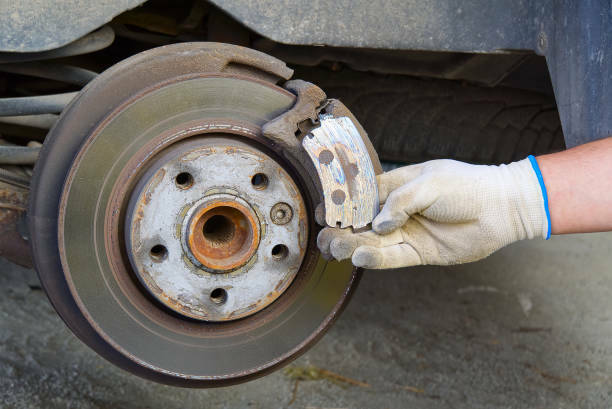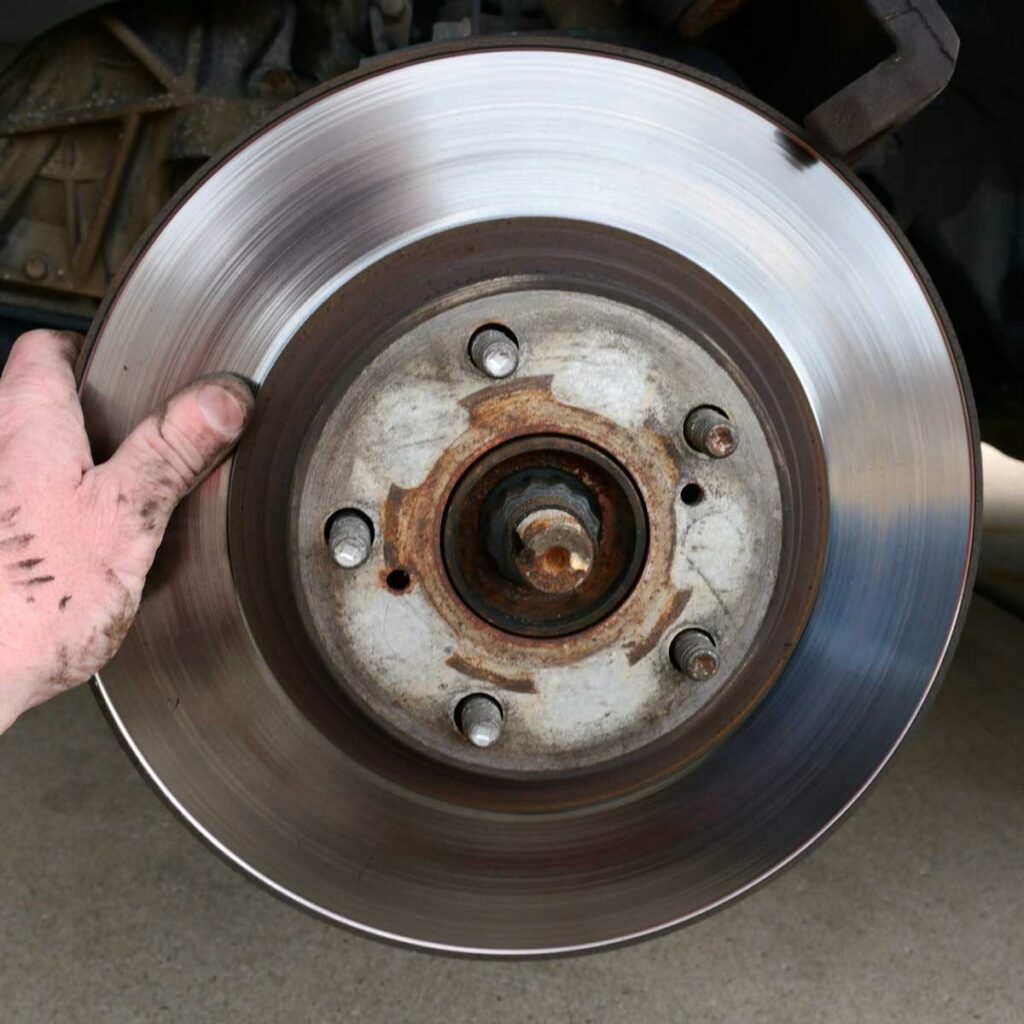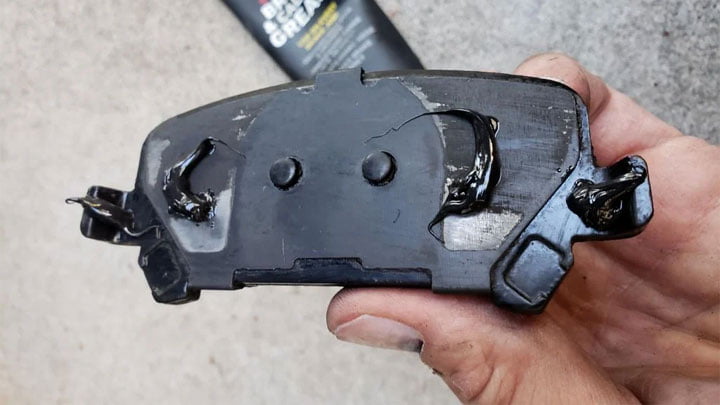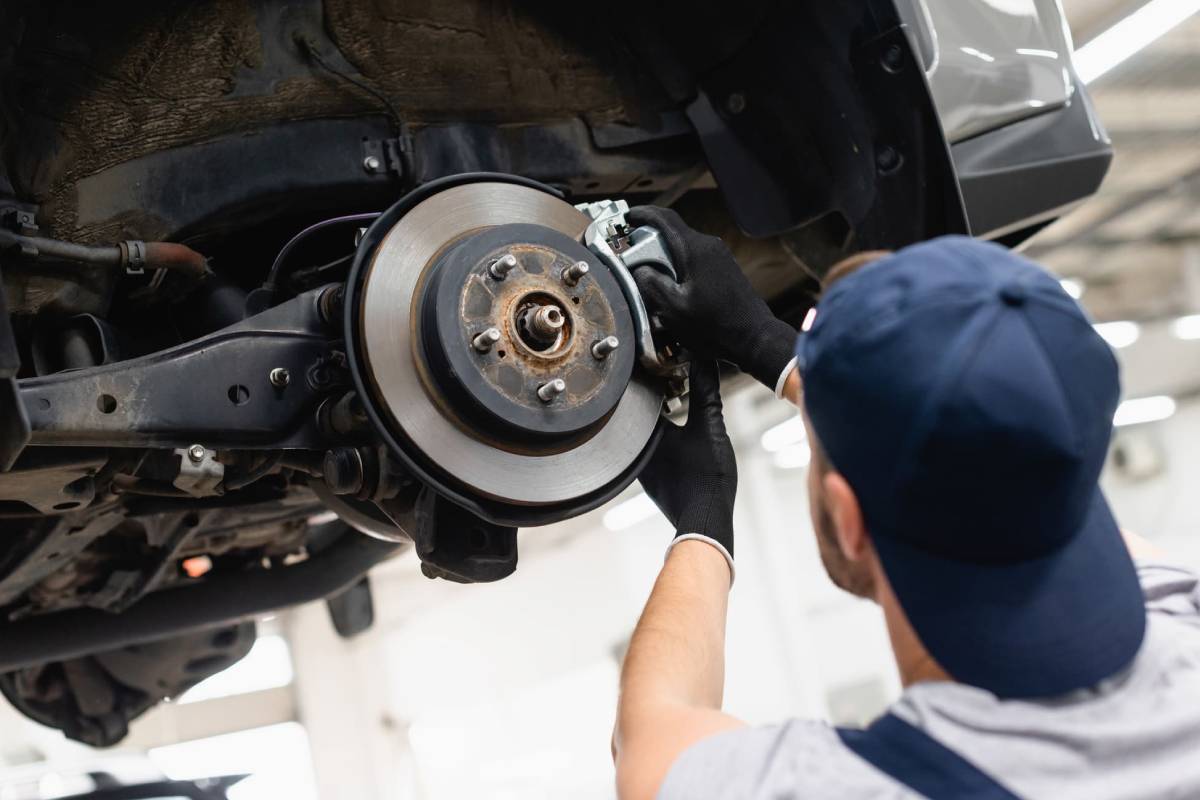Last updated on March 10th, 2024 at 11:53 am
Noise when braking at low speed can be a concerning issue for any vehicle owner. This issue can arise from a variety of causes, ranging from worn brake pads to damaged rotors.
Not only can this noise be irritating, but it can also indicate a more serious problem with the brake system. It is essential to diagnose the cause of the noise as soon as possible and implement the appropriate fix to ensure the safety of the vehicle and its passengers.
In this article, we will explore the common causes of noise when braking at low speed and provide practical solutions to address the problem.
So, if you’re experiencing brake noise at low speeds, be sure to read this article to get a better understanding of the problem and learn how to fix it effectively.
Types of the noise When Braking at Low Speed
There are several types of noise that you may hear when braking at low speeds. Some common types of brake noise include squealing, grinding, and scraping sounds.
Squealing noises are often caused by worn brake pads, and they may be more noticeable when the brakes are applied gently at low speeds.
Grinding noises are typically caused by metal-on-metal contact between the brake pads and the brake rotors, and they can indicate that the brake pads have worn down to the point where the metal backing is making contact with the rotors.
Scraping noises can be caused by debris that has become trapped between the brake pads and the rotors, and they can also indicate that the brake pads or rotors are damaged or worn. It’s important to have any brake noise checked by a professional mechanic in order to diagnose and address the underlying issue.
What causes noise when braking at low speed?
Noise while braking at low speed can indicate a potential problem with your vehicle’s brake system. This noise should not be ignored, as it can be a sign of wear or damage to the brake components. \
Common causes of brake noise include worn brake pads, damaged rotors, and contaminated brake linings.
To ensure the safe operation of your vehicle, it is important to identify and address the source of the noise as soon as possible. In this section, we will discuss the key reasons for brake noise at low speeds.
Worn brake pads
Worn-out brake pads can create a loud, screeching noise when braking at low speeds. Brake pads are designed to stop your vehicle by applying friction to the rotor.
The friction material on the brake pads, typically made of copper, graphite, and iron, will gradually wear down over time, and as a result, the metal casing of the brake pad will come into contact with the rotor.
When this happens, the metal casing will create a loud and potentially damaging noise. It is important to regularly inspect your brake pads and replace them if they are worn out.
Low quality breaking pads

Low quality brake pads can cause noise when braking at low speeds. Brake pads are made of a variety of materials, and the quality of the brake pads can affect their performance. Poor quality brake pads may not be able to withstand the heat and friction generated by the brake system, which can cause them to break down and become noisy. When brake pads are made of poor quality materials, they can also become worn out more quickly, which can lead to additional brake noise and reduced braking performance.
It’s important to use high quality brake pads in order to ensure the performance and safety of your vehicle.
Damaged rotor disk

Damaged rotor disks can cause noise when braking at low speeds. The brake rotors, also known as brake disks, are the rotating discs that the brake pads clamp down on in order to stop the vehicle. If the rotors are damaged, they can become uneven, which can cause the brake pads to rub against them in an irregular pattern. This can lead to a noisy brake application, with a squealing or grinding sound coming from the brakes.
It’s important to have your brake rotors checked and replaced if necessary in order to ensure the performance and safety of your vehicle.
Caliper screws that have dried
Caliper screws that have dried out can cause noise when braking at low speeds. The brake calipers are the components that hold the brake pads in place, and they are attached to the vehicle’s suspension with bolts or screws. If these bolts or screws have become dried out, they can start to make noise when the brakes are applied.
This is because the brake pads may not be held in place securely, which can cause them to vibrate and make a noise when they rub against the brake rotors. It’s important to have your brake calipers checked and the bolts or screws tightened or replaced if necessary in order to ensure the performance and safety of your vehicle.
Broken Shims

Broken shims can cause noise when braking at low speeds. Shims are small pieces of metal or plastic that are used to fill gaps and create a snug fit between the brake pads and the brake calipers. When shims are broken, they can become loose and allow the brake pads to move around more freely. This can cause the brake pads to vibrate and make a noise when they rub against the brake rotors.
It’s important to have your brake pads checked and the shims replaced if necessary in order to ensure the performance and safety of your vehicle.
Debris Between the Brake Pads and Rotor
Debris between the brake pads and the rotor can cause noise when braking at low speeds. The brake pads clamp down on the brake rotor in order to stop the vehicle, and any debris that becomes trapped between the pads and the rotor can interfere with this process. This can cause the brake pads to vibrate and make a noise when they rub against the rotor.
It’s important to have your brakes checked and cleaned regularly in order to prevent debris from building up and affecting their performance.
Fixing the Brake Noise
- Jack up the front of your vehicle and place it securely on jack stands.
- Remove the front wheels of the car.
- Visually inspect the brake calipers, brake pads, and brake rotors for any signs of damage or wear. Look for cracks, chips, or other damage on the brake rotors, and check the brake pads for signs of wear or uneven wear.
- Use a flashlight to look inside the brake caliper and inspect the brake pads and the brake caliper itself. Make sure that the brake pads are properly seated and that the caliper is not bent or damaged.
- Use a clean cloth to remove any dirt or debris from the backs of the brake pads and the caliper itself.
- Apply a small amount of dampening paste to the backs of the brake pads, using a small brush or a clean cloth. Be sure to spread the paste evenly across the surface of the brake pads.
- Reinstall the front wheels of the car and lower the vehicle off of the jack stands.
- Test the brakes to see if the brake noise has been reduced. If the brake noise persists, have the brakes inspected by a professional mechanic.
Dampening paste is a lubricant that can be applied to the backs of the brake pads and the brake calipers in order to reduce vibration and brake noise. It’s a temporary fix that can help to reduce brake noise, but it’s not a permanent solution. It’s important to have any underlying issues with the brakes repaired by a professional mechanic in order to maintain the performance and safety of your vehicle.
FAQs About Noise When Braking at Low Speed
Q: How Long Can I Go Before I Replace the Brake Pads?
A: It’s generally recommended to replace your brake pads every 20,000 to 25,000 miles, depending on your driving habits and the type of vehicle you have. However, it’s important to regularly check your brake pads and replace them when they start to wear thin, as driving with worn brake pads can be dangerous and can damage your brake rotors. If you’re unsure about how to check your brake pads or when to replace them, it’s best to consult your owner’s manual or a qualified mechanic.
Q: Can brake noise be dangerous?
A: Yes, brake noise can be a sign of a serious problem with the brakes. If the brake pads are worn or the brake rotors are damaged, the brakes may not be able to function properly. This can increase the risk of accidents and make it more difficult to stop the vehicle in a timely manner. It’s important to have any brake noise checked and repaired by a professional mechanic in order to maintain the performance and safety of your vehicle.
Q: How can I prevent brake noise at low speeds?
A: To prevent brake noise at low speeds, it’s important to regularly inspect and maintain your vehicle’s brakes. This includes replacing the brake pads when they become worn, resurfacing or replacing the brake rotors if they are damaged or worn, and
CONCLUSION
In conclusion, if you hear a noise when braking at low speed, it may be caused by a variety of factors, including worn brake pads, contaminated brake rotors, or a lack of lubrication on the brake calipers. It’s important to have your brakes inspected by a qualified mechanic to diagnose the problem and recommend the appropriate repairs. In the meantime, avoid heavy braking and try to drive at a lower speed until the issue can be resolved.
By taking these steps, you can help ensure the safety and performance of your vehicle’s brakes.
FOLLOW US
